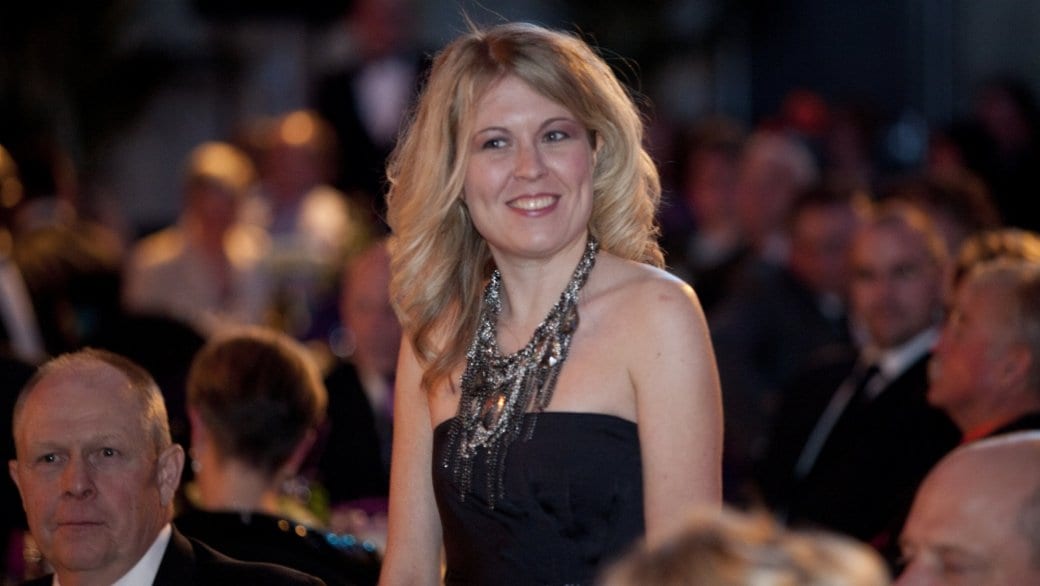Did you hear? The Conservatives want the LGBT community to know that they love us. This outpouring of support and acceptance has warmed me right down to the cockles of my heart. I may just melt.
And how do we know that they love us? Well, a grassroots organization called LGBTory is working to get the party to strike its opposition to same-sex marriage from the party manifesto. If they’re successful at the party’s convention in Vancouver this May, it’ll bring the party right to the cutting edge of 2005’s LGBT causes!
I don’t doubt the sincerity of the queer Conservatives who are trying to lurch their party forward on LGBT issues, but the baby steps do seem a bit chintzy, don’t they?
After all, despite the policy being part of the Conservative platform since the party was founded, the party did nothing to act on it since its designed-to-fail motion to repeal same-sex marriage in 2006.
Still, it’s progress, of a sort. If you squint.
It’s not as if the party is completely devoid of LGBT allies. Twelve Conservative MPs voted against reopening the same-sex marriage debate in 2006. Eighteen voted in favour of the trans rights bill C-279 in 2013.
Within the broader conservative movement in Canada, right-leaning governments have advanced trans rights bills in Alberta, Newfoundland and Labrador, and Saskatchewan, and even members of Ontario’s Progressive Conservatives supported that province’s trans rights bill.
But the federal party under Stephen Harper seemed to set “anti-LGBT” as its default mode. It’s a problem of record much more than one of perception.
With the Harper era already feeling like a distant memory, some prominent Conservatives are walking back the bristlier parts of his legacy. Notably, interim leader Rona Ambrose has already come out in support of rescinding the party’s anti-same-sex marriage policy. Oft-touted leadership aspirant Michelle Rempel is also pushing for a more LGBT-inclusive party.
Rempel lets out a loud, knowing laugh when I ask her about her party’s rocky relationship with the LGBT community, but she seems genuinely interested in learning how to meet the community’s needs.
“When we look at how our party relates to any community group in Canada, including the LGBT community, that future starts by reaching out to those communities and asking, how do we make a positive relationship?” she tells me over the phone from Ottawa.
But can the party’s past be irrelevant to its future relationship with the community?
Even if the party does adopt a modern understanding of marriage in its policy document — and that’s not at all a sure thing — then the road ahead is littered with minefields for its LGBT outreach.
The Liberals have already announced plans to reintroduce a trans rights bill. If the party votes against it again — even if a few dissenters vote in favour — then all of this outreach will be for naught.
Rempel initially spoke in favour of C-279 before switching to vote against it on final reading in 2013. At the time, she gave a speech outlining her sympathy for trans people and her reasoning, which was not entirely dissimilar from the argument I put in an op-ed a year earlier. (I’ve since come around on the bill, for reasons that will be the subject of an upcoming column.)
Other Conservative MPs and senators were not as respectful in their dissents. Some gave fear-mongering “bathroom bill” speeches that read like templates for North Carolina Republicans.
While she didn’t want to speculate on how her colleagues would vote on a trans rights bill now, Rempel said she is open to re-evaluating the bill when it’s presented to Parliament.
“A lot has happened in the trans community in terms of awareness in the last three years,” she says. “That is a long time between reviews of legislation, so we’ll see how it goes.”
For its part, LGBTory says it will lobby Conservative MPs to support trans rights, and other LGBT issues, as they come up in Parliament.
“We don’t intend to sit back after the convention and just become a social group,” says Eric Lorenzen, an executive member of LGBTory. “When something comes up that is of concern to the LGBT community, and the Conservatives are taking the wrong tack on that, we intend to call them out on it.”
The party may be looking to the future, but if the past is any indication, LGBTory may find it has its work cut out for it.


 Why you can trust Xtra
Why you can trust Xtra


